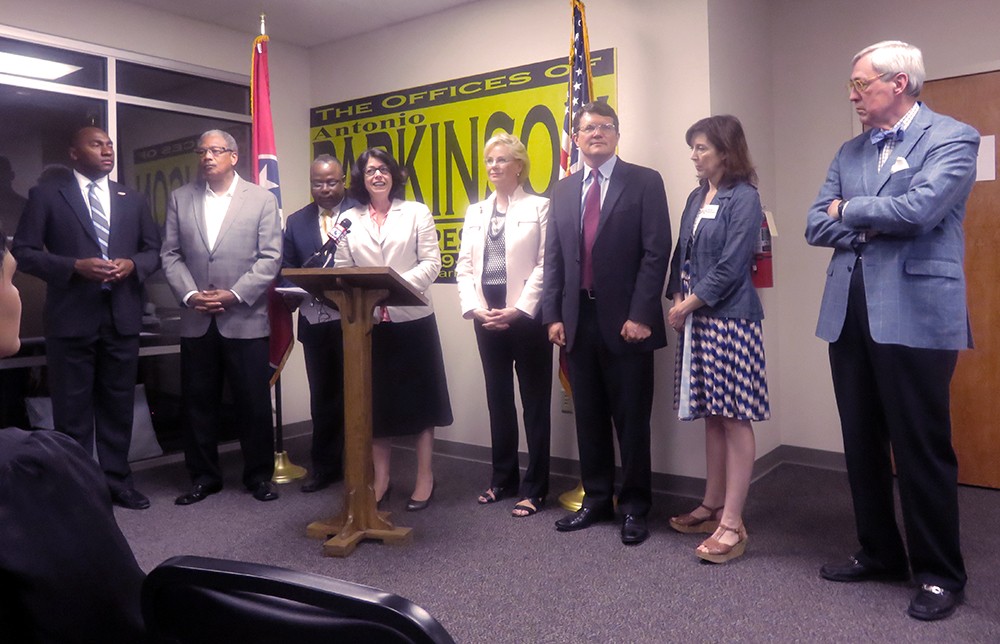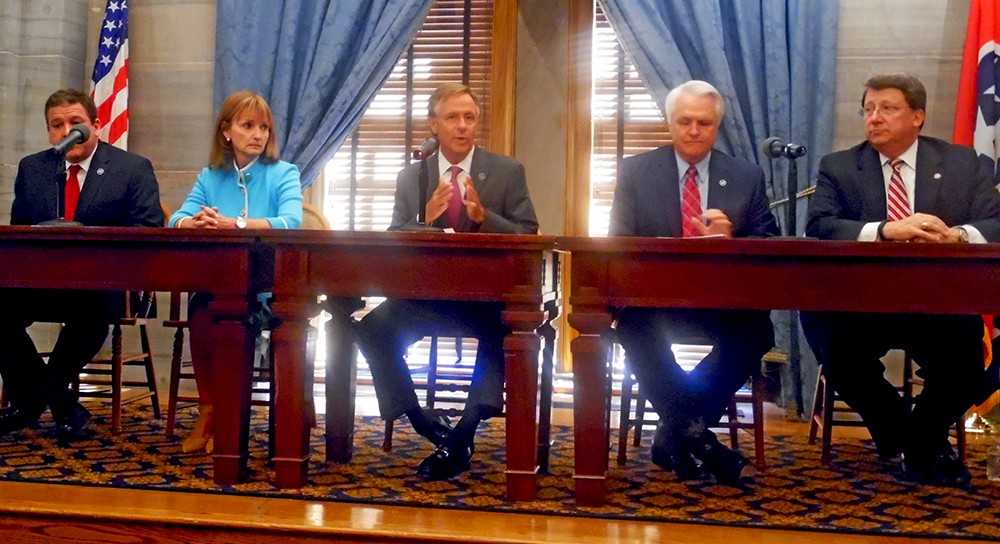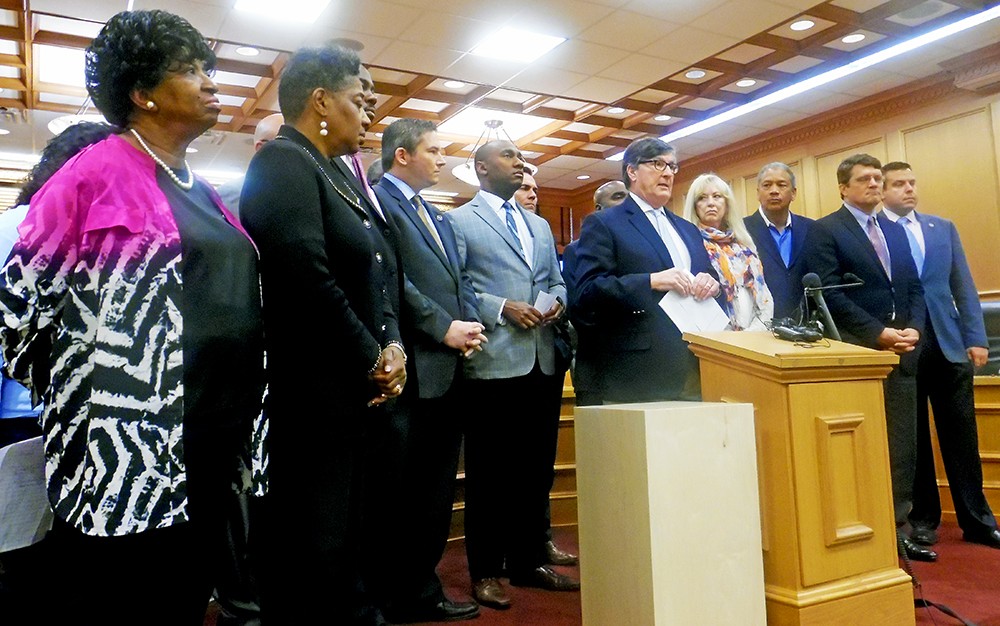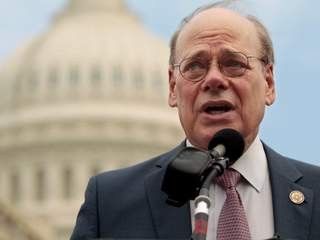Tennesseans have a strong sense of pride when it comes to valuing things like hard work and personal responsibility. People who work hard to provide for their family and contribute to their community help make Tennessee great. So, while it’s unfortunate that too many of Tennessee’s working poor are struggling to access affordable healthcare coverage, it’s encouraging to know there is a robust discussion being led by House Speaker Beth Harwell’s 3-Star Healthy Project Task Force aimed at addressing this problem.

Adam Nickas
Right now, hundreds of thousands of Tennesseans, of which more than 67,000 are residents of Shelby County, are living without access to care, falling into what’s called the “Medicaid gap.” These individuals earn too much to qualify for TennCare, our state’s Medicaid program, but too little to afford healthcare coverage on the federal insurance exchanges. These are people trying to make an honest living — three-quarters of them have worked in the last year.
Memphians never hesitate to give a helping hand, instead of simply a handout, to hardworking folks, and improving access to health care for this population does exactly that. The task force, which was established in April, is focused on finding sensible and financially responsible solutions to Tennessee’s healthcare problem. In just a few weeks, the task force will present their recommendations to the Centers for Medicare & Medicaid Services (CMS) in Washington, D.C.
In 2015, Governor Bill Haslam proposed a health-care plan, known as Insure Tennessee, to the Tennessee General Assembly. This program was designed as a for-Tennessee, by-Tennessee plan that promoted personal responsibility, imposed no new taxes, and would result in significant economic gains for our state. While the legislature did not accept the original proposal, there has been progress with the announcement of the task force to prepare a solution that increases access to affordable coverage for Tennessee’s uninsured population.
There are two critical items we hope the task force considers as they continue their work.
It’s important that any recommended solutions be comprehensive in scope. Limiting the scope of access to coverage to a segment of the Medicaid gap population leaves thousands of hardworking Tennesseans without access to affordable healthcare. A path to comprehensive coverage for this population is needed in order for the state to fully realize the economic gains from increased insurance coverage. A Tennessee study found that Insure Tennessee would create more than $1.1 billion in new health-care spending, $909 million in new income, and 15,000 full-time equivalent jobs for Tennessee residents.
One of the key drivers of these potential economic benefits is the fact that a comprehensive solution would help reverse deep cuts to Medicare reimbursement rates for Tennessee hospitals that were a result of the Affordable Care Act (ACA). The numbers tell a striking story: Our hospitals are projected to lose $292 million this calendar year and $8.2 billion by 2024. With the closing of three hospitals in Tennessee since the beginning of 2016, we have all become acutely aware of the negative impact of those closures. Hospitals are economic engines within our communities, providing over 35,000 jobs in Shelby County and 630,000 jobs across the state. A plan that increases access to affordable healthcare can help to offset these cuts and protect our hospitals.
That’s why any recommendation from the task force must secure approval from federal officials. Without that approval, millions of dollars will continue flowing out of Tennessee and into states like California and New York. To be clear, the money being cut from our hospitals isn’t going to another Tennessee program. It is going to states that have implemented similar efforts to cover those in the Medicaid gap, and we need to bring these tax dollars back home.
The 67,000 Shelby County residents, some of whom are veterans who bravely served our country, carpenters who are building homes in our communities, and waiters and waitresses who serve us at local restaurants, deserve a solution.
Governor Bill Haslam’s 2015 proposal for Insure Tennessee provides a strong blueprint for a solution, as it would extend coverage to an estimated 280,000 of our hardworking friends and neighbors currently struggling in the Medicaid gap.
As the task force presents its recommendations in Washington later this month, we hope they bear in mind our recommendations so that their proposal aligns with Tennessee values and leads the way to a responsible, healthy future for our communities.
Adam Nickas is the executive director of Tennesseans for a Responsible Future, a nonprofit organization that supports efforts to improve the health and prosperity of Tennesseans through the promotion of sound health-care policies.
 Jackson Baker
Jackson Baker  Jackson Baker
Jackson Baker  JB
JB 

 JB
JB  JB
JB 
